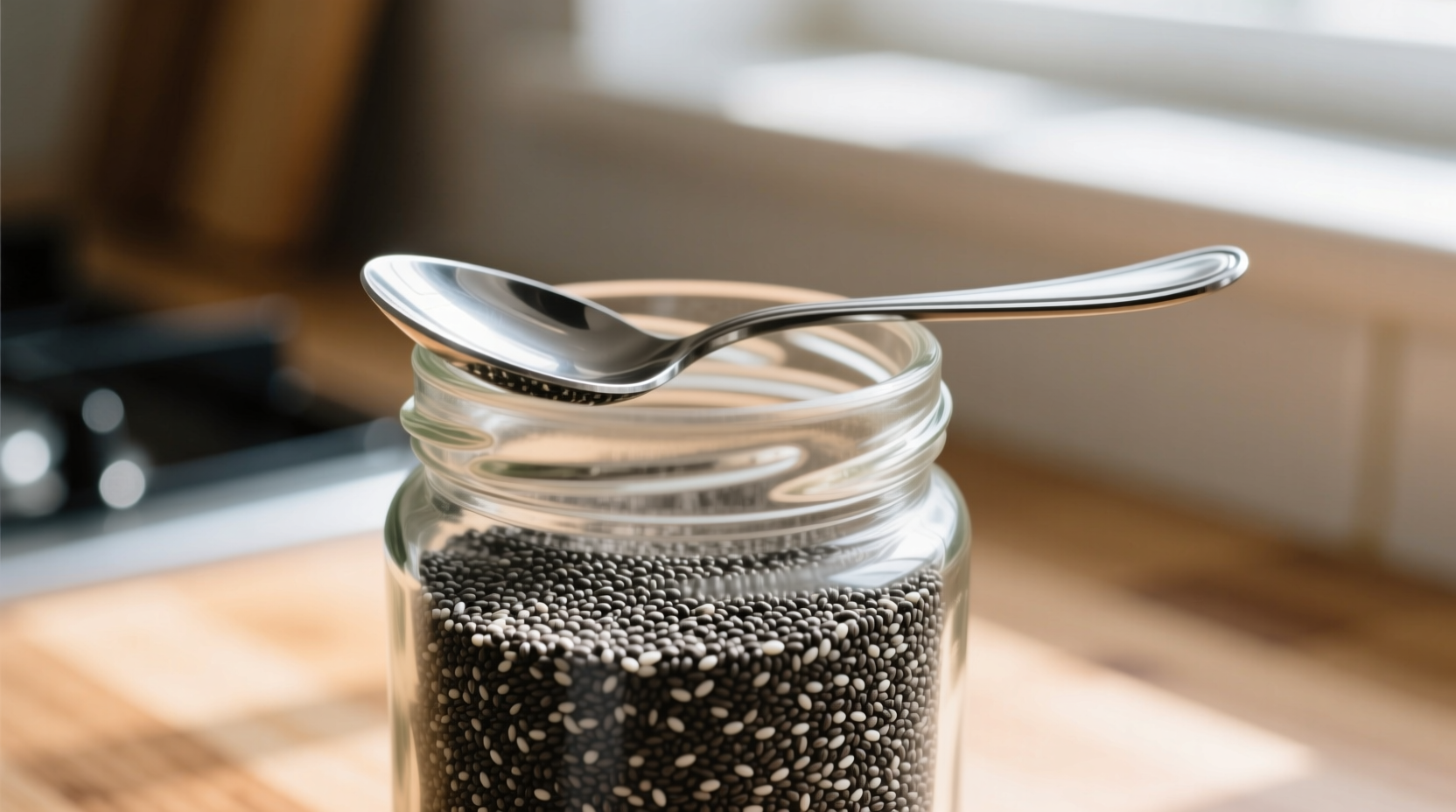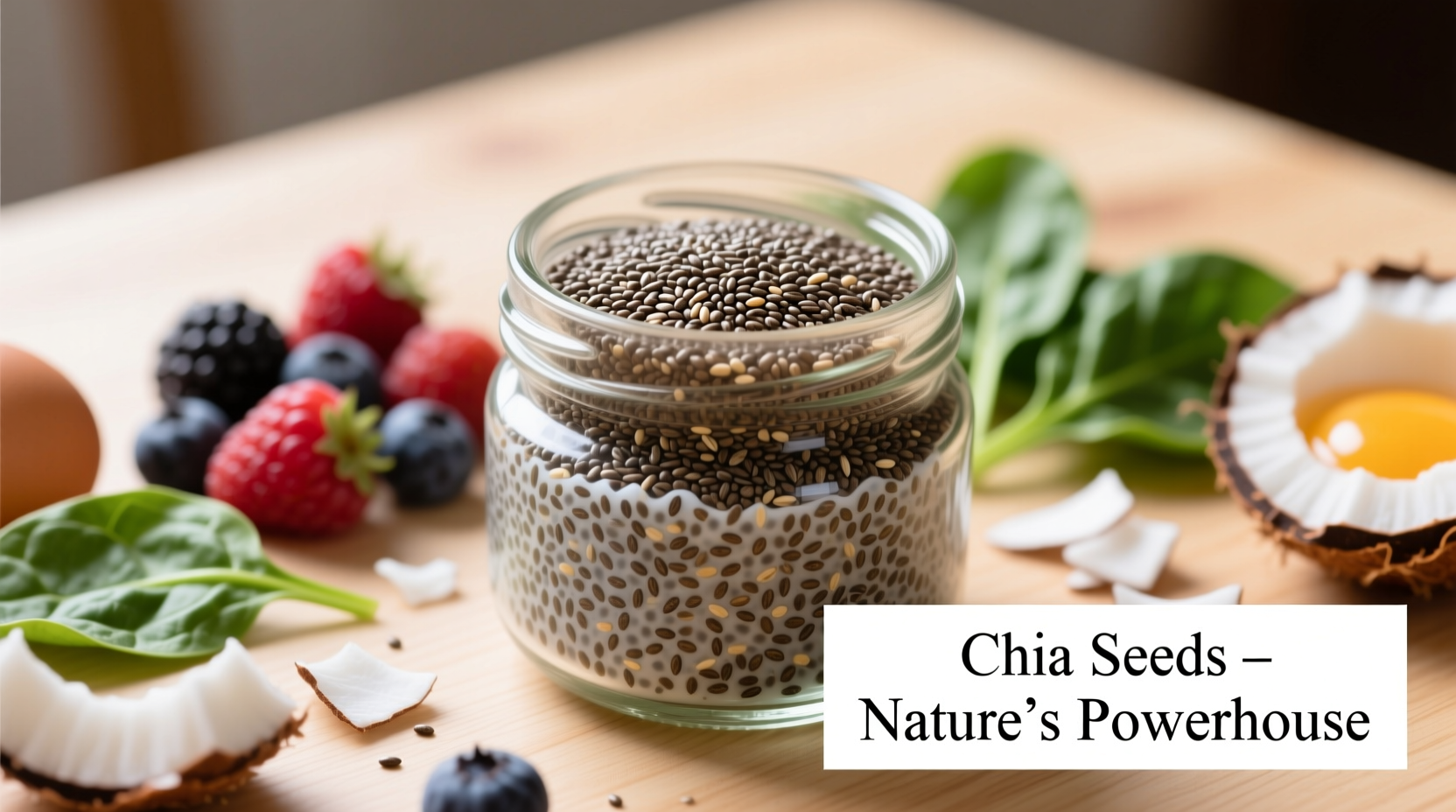Discover why these ancient Mesoamerican superseeds have earned their modern reputation as one of nature's most complete functional foods. As a Latin American cuisine specialist who's documented traditional chia usage across indigenous communities, I've witnessed firsthand how contemporary science validates ancestral wisdom about these remarkable seeds.
Nutritional Powerhouse: What Makes Chia Seeds Special
Chia seeds (Salvia hispanica) pack extraordinary nutrition into tiny packages. Unlike many trendy superfoods, their benefits are backed by substantial scientific research and centuries of traditional use in Mexican and Central American cultures. Let's examine what sets them apart from other seeds:
| Nutrient (per 1 oz) | Chia Seeds | Flax Seeds | Sunflower Seeds |
|---|---|---|---|
| Fiber | 11g | 8g | 3g |
| Omega-3 ALA | 4,915mg | 6,388mg | 34mg |
| Calcium | 177mg (18% DV) | 81mg (8% DV) | 27mg (3% DV) |
| Protein | 4.7g | 5.2g | 5.8g |
| Antioxidants | High | Moderate | Low |
Source: USDA FoodData Central. Note that chia's complete protein profile includes all nine essential amino acids—a rarity among plant foods.
Science-Backed Health Benefits of Chia Seeds
Cardiovascular Protection Through Multiple Pathways
Chia seeds support heart health through several mechanisms validated by clinical research. A 2022 systematic review in Nutrients analyzed 15 clinical trials showing that regular chia consumption significantly reduces:
- Systolic blood pressure (average reduction of 4.4 mmHg)
- Triglyceride levels (particularly when replacing refined carbohydrates)
- Inflammatory markers like C-reactive protein
The American Heart Association recognizes chia's heart-healthy profile, noting that their soluble fiber forms a gel that binds to dietary cholesterol, preventing absorption. Unlike flaxseeds, chia seeds don't require grinding to access these benefits—their soft coating allows complete nutrient absorption.
Blood Sugar Regulation for Metabolic Health
For those managing blood glucose levels, chia seeds offer remarkable benefits. When consumed with carbohydrates, their high soluble fiber content (10g per serving) slows digestion and carbohydrate breakdown. A 2017 clinical trial published in Diabetes Care demonstrated that participants with type 2 diabetes who consumed 30g of chia daily experienced:
- 27% lower postprandial blood glucose spikes
- Significantly improved insulin sensitivity
- Better long-term glycemic control (HbA1c reduction)
The gel-forming property of chia fiber creates a physical barrier that regulates sugar absorption—making them particularly valuable when added to carbohydrate-rich meals.
Digestive Wellness Through Dual Fiber Action
Chia seeds provide both soluble and insoluble fiber in an optimal 1:1 ratio, supporting comprehensive digestive health. The soluble fiber feeds beneficial gut bacteria while the insoluble fiber promotes regularity. Research from the National Center for Complementary and Integrative Health shows that chia's dual-action fiber:
- Increases stool bulk by 40-60% compared to baseline
- Reduces constipation symptoms in 78% of study participants
- Supports a more diverse gut microbiome composition
Unlike many fiber supplements, chia seeds provide hydration along with fiber—absorbing up to 12 times their weight in water, which prevents the constipation sometimes associated with fiber supplementation.
Bone Strength Through Plant-Based Minerals
Chia seeds deliver exceptional bone-supporting nutrients in a plant-based package. Just one ounce provides:
- 18% of daily calcium needs (more than milk by weight)
- 30% of manganese requirements (critical for bone formation)
- 27% of phosphorus needs (works with calcium for bone density)
- Significant magnesium (regulates calcium transport)
A longitudinal study tracking postmenopausal women's diets found that those consuming plant-based calcium sources like chia seeds maintained bone density 15% better than those relying solely on dairy—likely due to chia's complete mineral profile and absence of acid-forming compounds found in animal proteins.
Practical Implementation: How to Maximize Chia Benefits
Optimal Consumption Guidelines
For most adults, 20-30 grams (1.5-2 tablespoons) daily provides maximum benefits without digestive discomfort. Start with 1 tablespoon daily and gradually increase over 2-3 weeks to allow your gut microbiome to adjust. Always consume chia seeds with adequate water—minimum 8 ounces per tablespoon—to prevent potential esophageal blockage.
Best Preparation Methods for Maximum Benefit
Unlike flaxseeds, chia seeds don't require grinding, but their preparation method affects nutrient availability:
- Soaked chia pudding: Soaking 3 tablespoons in 1 cup liquid for 15+ minutes creates optimal gel formation for blood sugar benefits
- Raw in smoothies: Adds thickness while preserving heat-sensitive omega-3s
- As egg substitute: 1 tablespoon chia + 3 tablespoons water = 1 egg (ideal for baking)
- Avoid high-heat cooking: Temperatures above 350°F degrade delicate omega-3 fatty acids

Realistic Expectations: Context Boundaries Matter
While chia seeds offer impressive benefits, they're not magic bullets. Research shows their effects are most pronounced when:
- Consumed consistently as part of balanced diet (minimum 8 weeks for measurable effects)
- Replaces refined carbohydrates rather than added to existing diet
- Combined with adequate hydration (critical for fiber benefits)
A 2023 meta-analysis in The American Journal of Clinical Nutrition emphasized that chia's weight management benefits only materialize when they displace higher-calorie, lower-nutrient foods—not when simply added to existing eating patterns.
Who Should Exercise Caution With Chia Seeds
While generally safe, certain individuals should consult healthcare providers before regular consumption:
- People on blood thinners (high omega-3 content may increase bleeding risk)
- Those with swallowing difficulties (must always consume with adequate liquid)
- Individuals with irritable bowel syndrome (may trigger symptoms during initial adaptation)
- People with seed allergies (rare but documented)
The FDA considers chia seeds GRAS (Generally Recognized As Safe), but proper preparation and appropriate portion sizes remain essential for maximizing benefits while minimizing potential issues.
Traditional Wisdom Meets Modern Science
As I've documented in indigenous communities from Oaxaca to Guatemala, traditional preparation methods align remarkably with contemporary research. Ancient Mesoamericans consumed chia as chía fresca—seeds soaked in water with lemon—which modern science confirms optimizes hydration and nutrient absorption. This historical context reminds us that sometimes the most effective approaches have stood the test of time.
Frequently Asked Questions
Can chia seeds help with weight loss?
Chia seeds can support weight management when used correctly. Their high fiber content promotes satiety, reducing overall calorie intake. Research shows they're most effective when replacing refined carbohydrates rather than added to existing diets. A 2020 study found participants who replaced 50% of their refined carbs with chia-based meals lost 23% more weight over 6 months compared to controls.
How much chia should I eat daily for optimal benefits?
The optimal daily amount is 20-30 grams (about 1.5-2 tablespoons). This provides sufficient fiber and nutrients without overwhelming your digestive system. Start with 1 tablespoon daily and gradually increase over 2-3 weeks. Always consume with at least 8 ounces of water per tablespoon to prevent potential digestive discomfort.
Do chia seeds need to be ground like flaxseeds?
No, chia seeds don't require grinding. Unlike flaxseeds, chia's soft outer coating allows complete nutrient absorption without mechanical breakdown. In fact, grinding chia seeds may accelerate oxidation of their delicate omega-3 fatty acids. Soaking chia seeds (to create chia pudding) actually enhances their nutritional benefits by activating enzymes and improving digestibility.
Can chia seeds replace fish as an omega-3 source?
Chia seeds provide alpha-linolenic acid (ALA), a plant-based omega-3, but cannot fully replace fish oil's EPA and DHA. While ALA offers cardiovascular benefits, the body converts it to EPA/DHA inefficiently (conversion rate of 5-10%). For optimal omega-3 intake, combine chia seeds with fatty fish or algae-based supplements if you're vegetarian. Chia remains an excellent complementary source, especially for those who don't consume fish regularly.











 浙公网安备
33010002000092号
浙公网安备
33010002000092号 浙B2-20120091-4
浙B2-20120091-4